第32章 XVI(1)
Ralph and his father came home to spend the holidays, and on Christmas day Bayliss drove out from town for dinner. He arrived early, and after greeting his mother in the kitchen, went up to the sitting-room, which shone with a holiday neatness, and, for once, was warm enough for Bayliss,--having a low circulation, he felt the cold acutely. He walked up and down, jingling the keys in his pockets and admiring his mother's winter chrysanthemums, which were still blooming. Several times he paused before the old-fashioned secretary, looking through the glass doors at the volumes within. The sight of some of those books awoke disagreeable memories. When he was a boy of fourteen or fifteen, it used to make him bitterly jealous to hear his mother coaxing Claude to read aloud to her. Bayliss had never been bookish. Even before he could read, when his mother told him stories, he at once began to prove to her how they could not possibly be true.
Later he found arithmetic and geography more interesting than "Robinson Crusoe." If he sat down with a book, he wanted to feel that he was learning something. His mother and Claude were always talking over his head about the people in books and stories.
Though Bayliss had a sentimental feeling about coming home, he considered that he had had a lonely boyhood. At the country school he had not been happy; he was the boy who always got the answers to the test problems when the others didn't, and he kept his arithmetic papers buttoned up in the inside pocket of his little jacket until he modestly handed them to the teacher, never giving a neighbour the benefit of his cleverness. Leonard Dawson and other lusty lads of his own age made life as terrifying for him as they could. In winter they used to throw him into a snow-drift, and then run away and leave him. In summer they made him eat live grasshoppers behind the schoolhouse, and put big bull-snakes in his dinner pail to surprise him. To this day, Bayliss liked to see one of those fellows get into difficulties that his big fists couldn't get him out of.
It was because Bayliss was quick at figures and undersized for a farmer that his father sent him to town to learn the implement business. From the day he went to work, he managed to live on his small salary. He kept in his vest pocket a little day-book wherein he noted down all his expenditures,-- like the millionaire about whom the Baptist preachers were never tired of talking,-and his offering to the contribution box stood out conspicuous in his weekly account.
In Bayliss' voice, even when he used his insinuating drawl and said disagreeable things, there was something a little plaintive; the expression of a deep-seated sense of injury. He felt that he had always been misunderstood and underestimated. Later after he went into business for himself, the young men of Frankfort had never urged him to take part in their pleasures. He had not been asked to join the tennis club or the whist club. He envied Claude his fine physique and his unreckoning, impulsive vitality, as if they had been given to his brother by unfair means and should rightly have been his.
Bayliss and his father were talking together before dinner when Claude came in and was so inconsiderate as to put up a window, though he knew his brother hated a draft. In a moment Bayliss addressed him without looking at him:
"I see your friends, the Erlichs, have bought out the Jenkinson company, in Lincoln; at least, they've given their notes."
Claude had promised his mother to keep his temper today, "Yes, I saw it in the paper. I hope they'll succeed."
"I doubt it." Bayliss shook his head with his wisest look. "I understand they've put a mortgage on their home. That old woman will find herself without a roof one of these days."